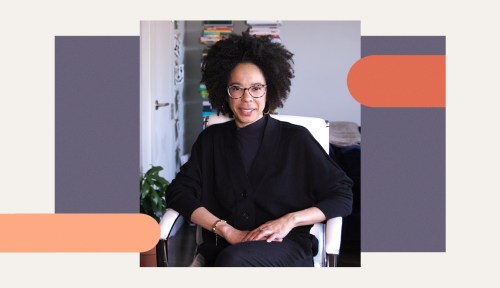Our editors independently select these products. Making a purchase through our links may earn Well+Good a commission
While many of us try to do our part to live life more sustainably, is there really hope for reversing the enormous damage and imminent danger of climate change. In the latest episode of Well+Good’s YouTube series Need To Know, that’s exactly what host Sophia Bush seeks to investigate during her conversation with climate-policy activist Ayana Elizabeth Johnson, PhD, a marine biologist, founder of Ocean Collectiv, and co-editor of the anthology All We Can Save. According to Dr. Johnson, it really depends. She’s cautious with her designation of hope, and that makes sense considering how ineffective hope is when it comes without action.
Experts in This Article
marine biologist, policy writer, and founder of Urban Ocean Lab, a think tank for the future of coastal cities
“‘Hope’ to me, as a word, that sounds a a bit passive,” says Dr. Johnson. “As a scientist, when I sort of zoom out, what I see is a spectrum of possible futures. I see the possibility of a really dangerous future if we don’t get our act together, transition off of fossil fuels, protect and restore eco-systems. Things could be very bad.”
Obviously, a lot of work needs to get done and so many issues need to be addressed, so the notion of swapping passive hope for intentional action can feel overwhelming. Where is the best and most pressing place to start?! The overuse of plastics? Food waste’s impact on climate change? If you don’t know where to begin when it comes to protecting our planet, Dr. Johnson suggests you start by learning the major sources of greenhouse gas (GHGs) emissions, which trap heat and warm the Earth. The biggest culprits in question are electricity generation, transportation, agriculture and land use, manufacturing, and a very miscellaneous “other” category.
“No one can do it all, so it’s a matter or figuring out how the skills each of us have map onto the solutions each of us need to be pushed forward.” —Ayana Elizabeth Johnson, PhD
“And then there are solutions of course for each of those categories, and so I like to think about which solutions I’m most excited to work on,” says Dr. Johnson. “No one can do it all, so it’s a matter or figuring out how the skills each of us have map onto the solutions each of us need to be pushed forward.”
In this sense, doing your part to fight climate change means doing whatever you’re most passionate about. Because while saving the world (literally) requires a big overhaul of systems, it also requires individual effort. Making the everyday choice to walk instead of drive, pause on buying new clothes, or simply shut off your lights when you leave the room can make some sort of difference. And going the extra miles in that lane by making meaningful lifestyle changes (maybe you switch your incandescent bulbs to LED models) is even better. Making these changes is what leads Dr. Johnson to feel optimistically hopeful that we can see another path.
“Then I see a future I’d actually want to live in,” says Dr. Johnson. “There are things that continue to change that we can adapt, and we can restore nature, and we can transition to renewable electricity, and we can have a world that’s still delightful. And so the opportunity is figuring out, ‘How do we make sure we have the best possible one?'”
Oh hi! You look like someone who loves free workouts, discounts for cult-fave wellness brands, and exclusive Well+Good content. Sign up for Well+, our online community of wellness insiders, and unlock your rewards instantly.
Sign Up for Our Daily Newsletter
Get all the latest in wellness, trends, food, fitness, beauty, and more delivered right to your inbox.
Got it, you've been added to our email list.











